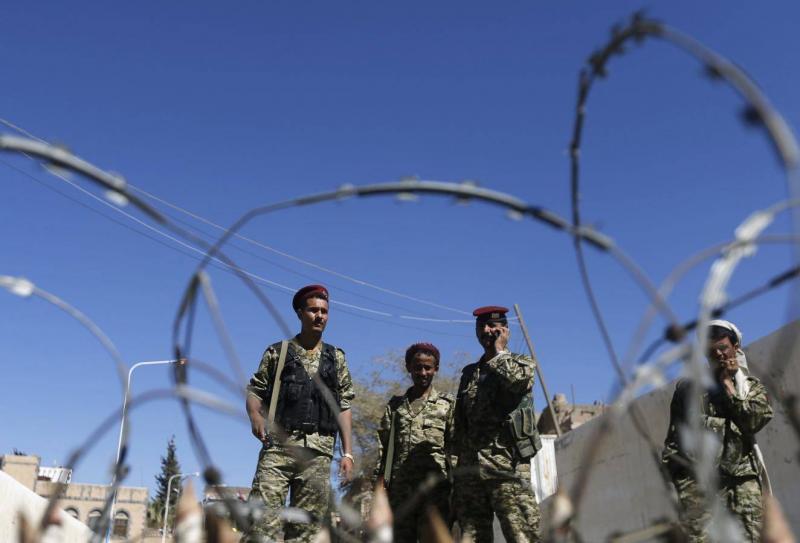The United States realizes that it will not be able to deter the Houthis from threatening international shipping in the Red Sea through the pressures and measures it has taken so far. The world understands that Washington is not utilizing its true capabilities, especially military ones, to impose its will on "liberating" the Bab el-Mandeb Strait and maritime corridors in the region. Under this equation, the Houthis operate within a vast margin of maneuver that provides them with the means to continue disrupting navigation and the flow of supply chains. There is no American-British decision to "eradicate" them, nor is there an international atmosphere suggesting the opening of the entire Yemen file and a reversal of power balances. Moreover, the sanctions imposed by Washington and London on some Houthi leaders only reinforce their reassurance regarding the limited level of available deterrence tools. Houthi leaders do not have financial assets in American banks or UK funds and have no plans to visit Washington or tour London. If the group reflects on the West's past sanctions against Iran and recent ones against Russia, it can observe the failure and ineffectiveness of those tools.
The group in Yemen, with Iran behind it, concluded that linking disturbances in the security of the Red Sea to the war in Gaza had an impact on regional and international circles, causing them to hesitate to join the "Prosperity Guard" alliance established by the United States last December. Additionally, Washington's leadership of the alliance was another reason for hesitance and reluctance. Saudi Arabia, the UAE, Egypt, and other countries bordering the Red Sea did not participate in the alliance, nor did any Western countries, prompting the European Union to form its own naval group. It seems that the region does not trust Washington and London's new approach in Yemen, both of which are responsible for thwarting the regional vision to combat the Houthi phenomenon in recent years. Conversely, some European countries refused to join the "alliance" either because it was formed in the context of the Gaza war (Spain) or because they did not want to place their naval forces under the command of Washington's generals (France and Italy).
The Houthi group also inferred that the United States has entered the mood of the presidential elections and that Washington's involvement in a new major war in the Middle East is not an electoral argument that President Joe Biden can capitalize on in his campaign to renew his mandate in the White House. The American move appeared improvised, bearing the cost of previous administrations’ positions on the Yemen issue. It also seemed that the Biden administration specifically was paying the price for its mismanagement of the Yemen "situation" when President Biden decided, on February 21, 2021, in one of his first decisions in office, to remove the Houthi group from the terrorism list. This decision then expressed a childish haste aimed at his predecessor Donald Trump and at Saudi Arabia and the Arab coalition at the time. This administration reclassified the group as a terrorist organization on January 18 of this year and recently imposed sanctions on some of its leaders while attacking their sites and bases with missiles. This reflects the largest failure by the United States in evaluating and assessing a major geostrategic crisis like the Yemen crisis and deciphering its complexities. Amid this reality, countries bordering the Red Sea observe the event neutrally, unwilling to engage in an American workshop that lacks plans and vision for incentives addressing the Yemen problem in its real political and geopolitical dimensions.
What comes from American and British platforms indicates that the military strikes by the two countries aim to "weaken" the Yemeni militia's ability to target commercial vessels sailing in the waters off Yemen. The use of the word "weaken" either conveys to the Houthis and the Iranians behind them that there are no intentions to "eliminate" the group's capabilities or plans for a major war that would undermine the Houthis' ability to overlook the Red Sea shores. These signals suggest an acceptance of the context that the Houthis are hinting at. The militia seeks international recognition, particularly from the U.S., of its status in Yemen and the broad space it aspires to occupy within the country. If prior American-British pressures had "rescued" the Houthis from a plan by the Arab coalition and the Yemeni legitimacy to liberate Hodeidah and imposed on the warring parties the Stockholm Agreement in 2018, then the group (with Iran behind it) aspires to the world acknowledging its predominance in the Yemeni power balances.
It is true that nothing in Washington or London suggests a move towards striking a deal with Tehran in favor of the Houthis in Yemen, but the United States understands that the military option will not be fruitful to the extent that it calls for China's intervention for pressure and mediation. If reports are true that Beijing has done something in this regard and hinted at Tehran's dissatisfaction with its arm's behavior in Yemen, it reflects a complex surreal scene mixing improvisation with caprice involving the two major adversaries, China and America, at a rare moment. Tehran will not be bothered by the grievances of its "ally" China, which implicitly recognizes Iran's capabilities in controlling international corridors and maritime passages in the Middle East, including the Bab el-Mandeb Strait and its impacts on the Suez Canal. It will not trouble them to persist in claiming that the Houthi decision is independent of Tehran’s decree and to suggest to inquirers that they "will strive," even if that rhetoric needs creativity and fatwas from Tehran's ruling elite. The conditions of the impasse may have prompted the leakage to the "Wall Street Journal" concerning prior secret warnings that the United States had sent to Iran about the Kerman attack, as Tehran needs to come down (and lower the Houthis with it) from the high ground while boasting of Washington's services and listening to Beijing's discontent.




